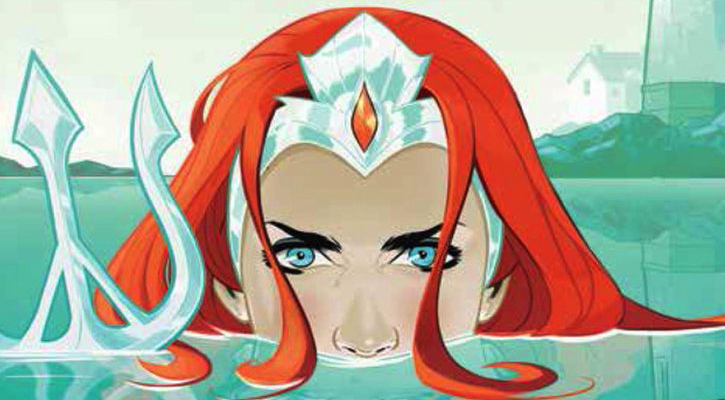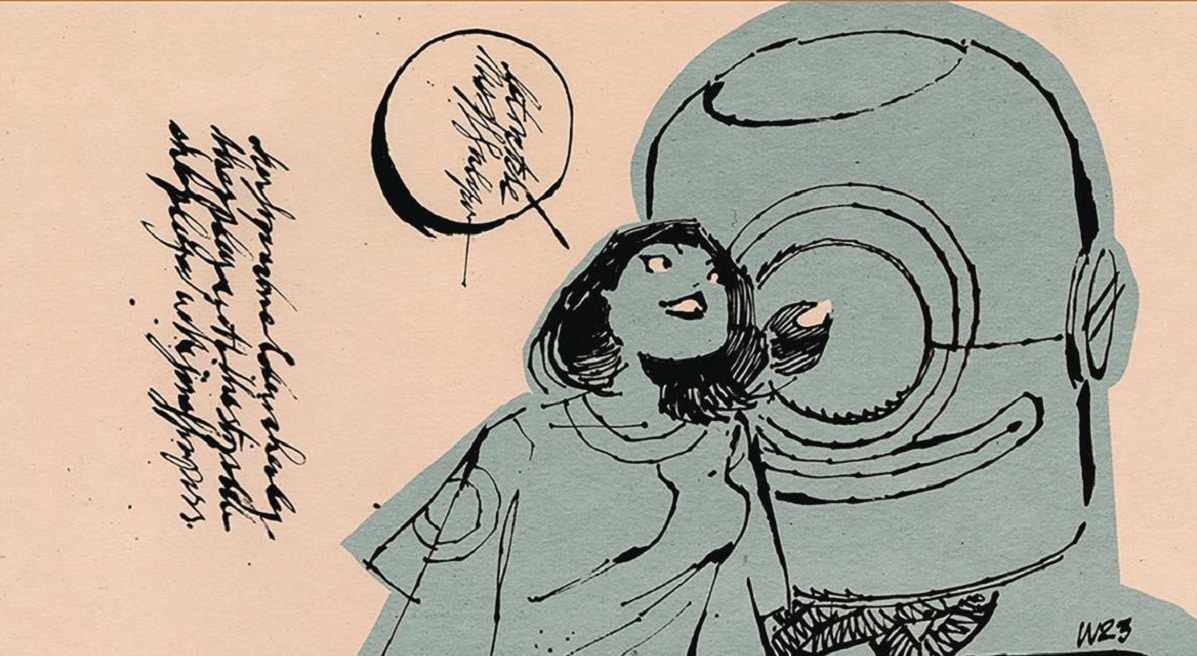There’s been a lot going on since Diamond’s new benchmark bombshell, with several alternative distribution sources cropping up, notably Ka-Blam and their Print-on-Demand ComicsMonkey. However, a much lower discount than retailers are used to might make this a less popular option.
A few more industry figures have commented, as well. Harris Comics’ Bon Alimagno writes about it on his LJ and Blog@ — it’s an interesting viewpoint from an established publisher which makes most of its money outside the direct market, but still has enough of a stake in that channel to be affected:
I’m not sure if it has sunk into the mind of the average comic shop goer what setting these rules mean. The new rules place a huge emphasis on initial sales, in a direct market largely resistant to anything different and new. A year from now it’s very likely what few non-superhero comic books you are used to seeing at your local comic book shop may disappear unless you frequent one that already features a wide ranging selection. The direct market is a vicious cycle: comic book shops are widely considered the best place to buy superhero comics, so most of the people who frequent these shops are people who read superhero comic books. Retailers who order comic books do so on a non-returnable basis. They have to place their bet on what comic will and won’t sell. If they bet wrong they are stuck with extra inventory that may never move. More often than not they’ll place their bet with a sure thing, something with a consistent track record or built-in fan base. Retailers then order mostly superhero books. Anyone looking for anything else will more often than not find a very limited selection appealing to their tastes, so they stop coming, leaving the store increasingly in the hands of superhero comic book readers.
Non-Big Four publishers will often find their books under ordered. In cases like that, they’ll hope that word of mouth and positive reviews stir interest in their titles and lead to reorders. Except now reorders are limited to sixty days, not that much time to grow an audience.
Creator James Owen also has some thoughts, which reflect his long time in the industry and shifting role:
I’ve had more than my fair share of disputes with Diamond over the years. Some were private, some were public, some were epic-level public – as I was one of the few publishers, along with Viz and Kitchen Sink, to sign exclusives with ‘the other side’, Capital City, during the Distribution Wars. But I want to point out – and I cannot stress this too strongly – the only times I had a conflict with Diamond was when they had dropped the ball on something they were actually obligated to do, and then tried to sweep it under the rug, or when the reps we were dealing with treated I or my colleagues in an unprofessional manner. Never because they weren’t doing something I simply wanted them to do, that they had no obligation to do. What this usually meant – and why I have a LOT of sympathy for all of the smaller publishers right now – was that one Diamond rep or another was sloppy and/or arrogantly dismissive of whatever issue I or my other small press friends were having. Books would be listed incorrectly – and options to remedy this were limited to a low-priority correction (read as: retailer packing papers), or a re-listing for the next month – which would devastate our projections and cash flow. Shipments would go astray, which might hold up payment – which could break a small press if it happened at the wrong time. Situations like those were anger-inducing because they were errors in the actual business Diamond was engaged in: solicitation and distribution of product.
Nothing about this is cut and dried — the other day, we mourned the loss of Kevin Huizenga’s OR ELSE, but Huizenga himself seems to be going towards the notion that little comics aren’t a viable option for cartoonists any more — and by modern alt-cartoonist standards, Huizenga is incredibly prolific. Sammy Harkham managed a slim 32 pages of material since 2006 in CRICKETS, and while excellence in any dose is always welcome, that definitely stretches the idea of “periodical.”
As readers, we’re more fond of the MOME model — a regular anthology of dependable quality that allows folks to stockpile material for eventual spine-out presentation. Is MOME a sales blockbuster? Probably not, although it doubtless sustains. The regular comics anthology has become an economic dead zone in the current superhero/Vertigo/WildStorm/Marvel marketplace and unless the Japanese model somehow catches on here, it seems likely to stay that way.
As Owen alludes, this isn’t a Diamond BAD/creator GOOD thing, or the reverse. The comics distribution system is much healthier than it has been, due to a steady supply of good product. We’re currently undergoing the worst worldwide economic crisis since the Great Depression — Diamond is just another leaf in the storm and we’re all going to have to find new ways of doing business.
Bonus: Owen draws a parrot!








Let me be one of the first and pull a prediction out of my tucchus…
Within the next 3 years:
1. Previews will be slimmer, because
2. There will be far fewer indies listing in it (due to economics and T&Cs), and
3. Small press creators will give up on the periodical model, switching to the graphic novel format, because
4. Traditional booksellers will become the destination for non-super comix (just as the Wii has become the go-to choice for non-gamers).
Final analysis: The smaller fry out there who decide not to try Haven Distribution’s model will go the Baker & Taylor route, and really, that’s where their audience is anyways…
Comments, anyone?
I would venture a guess that the old adage about there being only ~300 stores that order the back of the catalog is going to get closer to a hard line. The larger stores will be much more likely to deal with multiple distributors, as they’re more likely to have somebody whose job is primarily handling the ordering, especially if there’s a shift to selling directly to the stores.
Glancing at ComicMonkey, that 35% plus shipping is going to rule out smaller/single copy orders unless I miss my guess, and if I glanced at the numbers right, moving 1000 copies of a $3.99 book would only net $400 for the creators. Better than losing money, but…
I suppose we could see a rise in direct-to-consumer sales… and that’s essentially the webcomics model for tbs…
>>…35% plus shipping is going to rule out smaller/single copy orders…
>>…35% plus shipping is going to rule out smaller/single copy orders…
Perhaps comics retailers can chime in, but from my perspective as a former comics distributor: Retailers want 50% off when they buy wholesale; retailers will hold their nose and order at 45% off small press titles; and retailers avoid 40% off comics unless there are no other options and it’s practically a guaranteed sale. At 35% off retail, well, that dog won’t hunt.
A note to comics publishers out there, who want to get their comics into stores: Understand that the retailers out there have a limited amount of money they can spend on inventory, and are always choosing between sellable product. Most of the time, if a retailer has a choice between ordering a comic book at 50% (or for the bigger publishers, 55%) off retail and a comic book at 40% or 45% off retail, and given that both books are likely to sell in their store, guess which one they are likely to gravitate towards? It’s a matter of opportunity cost – which product is likely to return the greatest profit in the shortest period of time? (Of course there are other factors at play, like a retailer’s desire to carry a broad selection of product, or expand their market; but financial decisions usually play a bigger role in ordering decisions in my experience) Remember, comics publishers – you’re competing for the retailers’ dollars and attention, if at all possible aim for that 50% keystone discount; otherwise you are handicapping yourself before you even start.
The beef I’m having right now with Haven Distribution is that they don’t return e-mails or phone calls and they’ve told me they’re willing to carry my stuff- but yet, I haven’t see it listed, nor can they provide with proper log in passwords.
Perhaps, if I call them tomorrow – with the bottom falling out of Diamond- they’ll be more responsive.
~
Coat
Matt — I was thinking along the lines of a special order wouldn’t even be worth it unless there were 4+ book to spread the postage over.
I purchase a copy of Previews every once in a while from my local comic shop. There is so much information in each issue that I can understand a small publisher feeling lost in there. In addition, the Previews catalog is too large, and in my opinion, carries too wide a variety of products. I skip the entire “inaction figures, tshirts and lunchboxes” section.